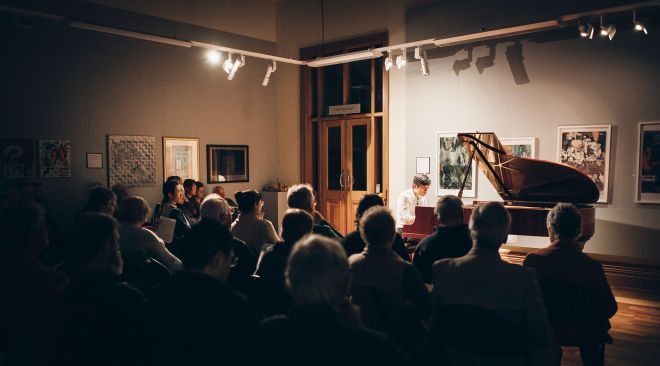
Warkworth Musica
Review: Bruce Carlsson
Mahurangi College Hall, Warkworth
Friday, 30th September, 2016
When polished talent, consummate musicianship, and passionate dedication converge in a single performance, the result is likely to be electrical. So it was with Tony Chen Lin’s presentation of works by Bach, Beethoven, Bartok, and Schumann, incorporating a composition of his own. Performing from memory, his concentration was solely on the keyboard, and the intensity was palpable.
The delivery of Bartok’s solitary Piano Sonata (Sz. 80), one of the most important works for solo piano of the early 20th century, was everything that it should be, taking us through a kaleidoscope of changing moods and musical ideas. Lin’s skill was outstanding, with every note crafted in the mind before being transferred to the keyboard. Roles were reversed. His hands became the instrument, and the piano the medium.
After receiving applause, another work of major significance to the piano repertoire – the Bach Prelude and Fugue in E Major BWV 878, again with amazing forethought and preparation. The voicing of the three parts in the prelude held such clarity that one was tempted to hum along with one or any of them, and working through six episodes, the final descent to the mild conclusion of the beautiful fugue released all tension in such a way that we were drawn by our reveries into a ruse. Pausing only briefly at the end, as between the prelude and the fugue, the Beethoven Piano Sonata in E major (op. 109) began. In Lin’s own words, “the sonata does not begin. The dreamlike first movement gently floats in, as if continuing a thought that had already arisen.” Using the end of the Bach as this “thought” and abetted by both pieces being in the same key, we were tricked! Denied the opportunity to applaud the Bach, we were led so subtly to the Beethoven that many missed the transition. This aural trompe de l’oeil was no accident, but by Lin’s own design. A little cheeky maybe, but oh so clever!
After the interval Lin presented his own composition, Digression (2016), which drew on inspiration from the digressive nature of Schumann’s music and took us on a sinuous fantasy balanced between delicacy and power, concluding the programme with Schumann’s own masterpiece Humoreske (op. 20), beautifully presented. Nominally in B flat major, most of it is actually set in its relative minor key of G minor. Schumann’s own humour at play again, perhaps? This time, however, no one was duped, and Lin was recalled back by sustained applause several times to receive our appreciation, to be released only after satisfying us with one more morsel, and to end as we had begun, with Bartok. We might search for a finer piano performance, but we might not find it.
You must be logged in to post a comment.